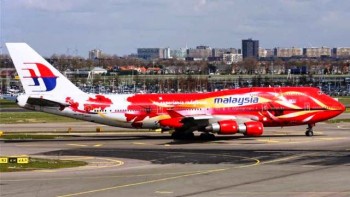
More than just a new coat of paint
Having studied past corporate responses to airline disasters – including those of Japan Airlines, Korean Air and ValuJet – the last of which suffered a major crisis in 1996 after one of its planes crashed in the Florida Everglades – I’m not surprised to hear that Malaysia Airlines is to be delisted pending a major restructure.
The below dot points, as stated in a recent article on Yahoo7 Finance, summarise the current situation:
- Malaysia Airlines to be de-listed and privatised ahead of major restructure
- Airline shares put in trading halt
- Malaysia’s state fund Khazanah Nasional to buy all minority shares
- Khazanah to offer 27 sen for each share it does not own
- Restructure to be finalised by the end of the month
- Airline lost 4.1 billion ringgit (A$1.37 billion) from 2011-13, and a 443 million ringgit ($A148.8 million) in Q1 2014
One common trait I have discovered is that rebranding forms an important part of the company’s survival. Indeed and unsurprisingly, The Financial Times recently reported that the Malaysian government was considering a name change for the airline, alongside other efforts to overhaul the company’s image.
It’s worth noting that Malaysian airlines employs some 20,000 people who each have every right to hope the experts can save the airline – whose present suffering may be no fault of its own. Prior to the recent twin tragedies, Malaysia Airlines was known for superior service in the sky and it took 14th place in the 2013 Skytrax World Airline Rankings.
But take a look at the history of changes to the livery of Japan Airlines (Flight 123), Swissair (Flight 111), ValuJet (Flight 592), and Korean Air (Flight 007), and you might be surprised to discover that the changes coincided with tragedy in the air. Revisionists might suggest that their survival depended on regaining the trust of a flying public. A more sceptical view might say their survival depended on a fresh coat of paint and a public with very short-term memory.
One hopes that any company who is responsible for the safety of the public looks deeper than a slide deck of new paint colours and graphic designs before it re-emerges to serve that public again.
A certain Charlie Munger quote comes to mind.
A colleague and I were looking at this the day it happened. We did a quick look over their fleet, a lot of it is leased, but looking at what they have, and what they do, we quickly came to the conclusion that the sum of the parts was worth more than what is was trading for on the market.
We didnt have the balls to put our money where our mouth was, but if they did perform a proper restructure, they were able to fix the legacy issues that they seem to have with labour relations and they try to streamline where there are inefficiencies, then you’d think they have a chance to turn it around. After the second event, it traded at something like 19.5 sen. If you bought at the low just after the event, (running into a burning building i may add) and you had the conviction that the sum of the parts is worth something, and you know that Khazanah Nasional (Khazanah is arabic for treasure box btw) is a stakeholder that for the sake of national interest wont let the national character go down, then you had a pretty compelling trade idea.
Now I’m not saying that it is ethical to try and buy on the basis that you know that it is a good trade, what I am saying is that if you run the ruler over what they have, and the fact that they are in a good geopolitical location, there’s a bit of a compelling argument for the restructure.
The downside in the trade scenario is that it goes into administration and you’re wiped out as a shareholder. But with a380s, new aircraft and a pretty good network along with slots at in demand airports, there are good preconditions for turnaround.